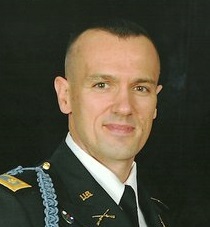I often wonder what people will say about the wars of Iraq and Afghanistan decades from now. What I will tell my children when they are able to understand the answers to questions about what happened “over there.” I am afraid I will forget. As every day passes, I struggle more and more to remember all the names of the soldiers in my platoon, the hard-to-pronounce places we fought, the day-to-day things we did during my two year-long combat tours in Iraq.
But what worries me most is that we, as a nation, will forget.
On Veterans Day we pay tribute to all American veterans, living and dead. We show our thanks in many ways. We attend Veterans Day parades, visit veterans hospitals or ask veterans about their service. But most important, we remember.
Even for those wars with no living veterans — whether the American Revolution or World War I — we can remember. We can access digital archives of battlefield maps. We can examine lists online of personnel who fought in each battle. We can read written orders from commanders, or personal diaries, journals and letters sent by soldiers to their loved ones.
Unfortunately, our recent conflicts will be difficult to remember this way.
Read the full piece at the Washington Post.



